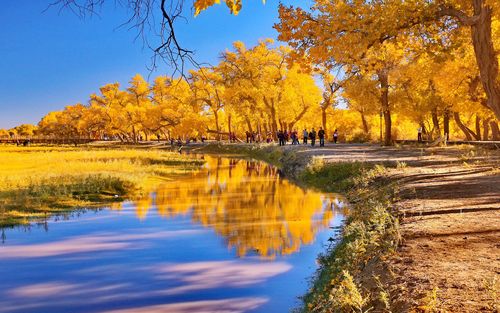Halloween is celebrated annually on October 31st with costumes, trick-or-treating, scary decorations, and plenty of candy. This beloved holiday holds a special place in many people’s hearts, but few know the fascinating origins of Halloween cultural traditions.
The roots of this holiday date back to ancient Celtic traditions from approximately 2000 years ago. The Celts celebrated their new year on November 1st, marking the end of summer and the harvest season. They believed the night before, October 31st, the boundary between the living and the dead became blurry, allowing spirits to roam free on earth.
To ward off these evil spirits, the Celts would light bonfires and wear costumes to disguise themselves as ghosts and ghouls. They also left out food and drinks to appease the spirits and prevent them from turning to mischief.
Over time, these traditions were merged with Roman festivals, such as Feralia and Pomona, leading to the establishment of All Saints’ Day on November 1st. This Christian holiday celebrated saints and martyrs who did not have a specific feast day, while All Souls’ Day on November 2nd commemorated the dead and gave Catholics an opportunity to pray for their loved ones.
Halloween continued to evolve with various cultural influences and immigration to America. In the late 1800s, Americanized Halloween became centered around communal gatherings, with parades and parties emphasizing ghosts and witches. Trick-or-treating gained popularity in the 1920s, and by the 1950s, the holiday had become a major commercial success in the US.
Today, Halloween is celebrated in many countries worldwide, with variations in traditions and customs. Mexico’s Dia de Los Muertos, which translates to Day of the Dead, is a three-day celebration starting on October 31st, that honors deceased loved ones with elaborate altars, colorful decorations, and food offerings. In Ireland, Halloween is still primarily centered around lighting bonfires and telling ghost stories, while in Japan, Halloween is celebrated differently each year with an ever-evolving mix of cultural influences.
In conclusion, exploring the fascinating origins of Halloween cultural traditions reveals that this holiday is deeply intertwined with history, religion, and culture. Although Halloween has evolved over time and varies across different countries, one thing is for sure: it continues to fascinate and delight people of all ages.
(Note: Do you have knowledge or insights to share? Unlock new opportunities and expand your reach by joining our authors team. Click Registration to join us and share your expertise with our readers.)
Speech tips:
Please note that any statements involving politics will not be approved.
